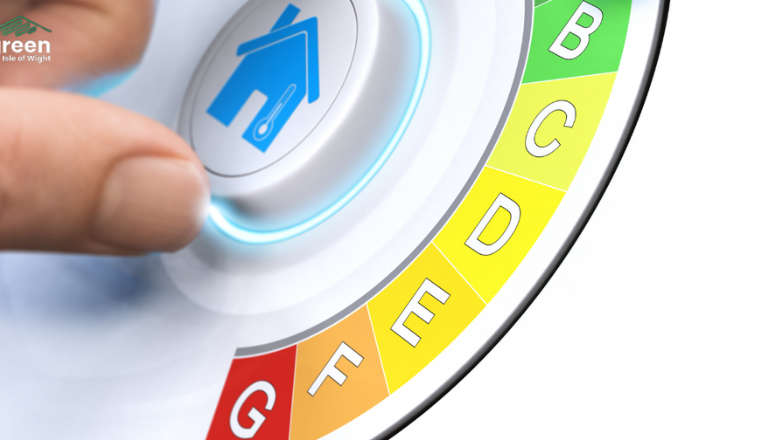
In the face of increasing cybercrime and online scams, part two of our series by Lisa de Silva explains how to stay safe online and how to protect yourself when using the internet.
DO NOT USE PUBLIC WI-FI
Never use public Wi-Fi to access your personal or financial data. It is tempting while you’re out and about to check your bank balance, change a password or take advantage of an online shopping offer, but public Wi-Fi has few safety protocols in place, and many do not even require a password. This makes it easy for hackers to steal your sensitive information without you realising. If you do need to access personal and financial data while out, 4G and 5G are safer to use than public Wi-Fi.
ONLY USE SECURE NETWORKS
Only ever change a password, update personal information, or do anything financial, such as shopping or making payments for services in a secured network. The most secure will be your home, where your internet access is password protected.
UPDATE SOFTWARE REGULARLY
Turn on automatic updates for software and ensure your anti-virus protection is on and up to date. Both Windows and Mac have built-in malware protection tools (Microsoft Defender and Apple’s XProtect) to offer extra security.
DO NOT INPUT YOUR DATA WITHOUT THINKING FIRST
Many sites ask you for personal details, including your date of birth, contact details and on some job-hunting sites your National Insurance Number and even your passport details. Be very wary about giving this information out. All this data is valuable to a criminal, so only include it if it is essential.
ONLY USE SECURE WEBSITES
Hackers can often use similar named sites to those you are familiar with, to trick you into clicking on a link. Always check the site name carefully for anomalies and only use websites which have a valid security certificate. This means the URL will start with ‘https,’ there will be a padlock symbol or a ‘verified’ or ‘secure’ mark and the site will have a Privacy Policy. If a website doesn’t have these, do not input any personal or financial data.
THINK BEFORE YOU CLICK – AVOID PHISHING SCAMS
Phishing scams are common and include links in emails, pop ups and unsecured websites. Clicking on these links can give a criminal access to your data and computer. If you are in any doubt about a link, open a new window and go to the website the link is purporting to take you to. This will ensure you are not being scammed.
DO NOT SAVE PAYMENT INFORMATION ONLINE
Never tick the 'Save My Card' box. It might be a pain having to input the details every time you shop, but it will save the problem of criminals getting hold of this information.
BACK UP YOUR DATA
To ensure you can access your data even when your device might be compromised, it’s important to regularly back up documents, photographs, and videos. This can either be done using a removeable device, such as a USB stick or external hard drive, or using cloud storage.
USE REMOTE FIND AND REMOTE WIPE SOFTWARE
Remote wipe software allows you to wipe all data from a lost or stolen device, while remote find software allows you to track a device that has been lost or stolen. Both of which could prove useful if your device goes missing.
SET UP A SEPARATE BANK ACCOUNT FOR ONLINE PAYMENTS
If you set up an online bank account, you can transfer money from your main bank account to the new one to pay for things online. This means that if a criminal gets hold of the online account details it will not jeopardise your main account.
USE A VPN
When you use a VPN (Virtual Private Network), everything you send is encrypted. A VPN connects to a remote server and hides your IP, adding an extra layer to your online security, as it makes it difficult to track the sender’s location or activity.

 Island Update: January 2025
Island Update: January 2025
 Ryde Rotary Centenary: 100 Years Strong
Ryde Rotary Centenary: 100 Years Strong
 Home Style: Scandi Island Life
Home Style: Scandi Island Life
 What to Watch in January 2025
What to Watch in January 2025
 Entertainment Guide: January 2025
Entertainment Guide: January 2025
 Memorial Held Following Death Of Kezi's Kindness Founder Nikki Flux-Edmonds
Memorial Held Following Death Of Kezi's Kindness Founder Nikki Flux-Edmonds
 Mountbatten Inviting Islanders To Sign Up For 2026 Lapland Husky Trail
Mountbatten Inviting Islanders To Sign Up For 2026 Lapland Husky Trail
 Home Style: Winter Wonderland
Home Style: Winter Wonderland
 Help Available For Islanders To Cut Energy Bills
Help Available For Islanders To Cut Energy Bills
 Island Update: December 2024
Island Update: December 2024
 New Home For Citizens Advice Isle Of Wight
New Home For Citizens Advice Isle Of Wight
 The Alternative Guide to Christmas Gifts
The Alternative Guide to Christmas Gifts
 Island Family Launches Appeal For Teenage Son With Brain Tumour
Island Family Launches Appeal For Teenage Son With Brain Tumour
 What to Watch in December 2024
What to Watch in December 2024
 A Gardener’s Best Friend: The Story of Bob the Robin
A Gardener’s Best Friend: The Story of Bob the Robin
 Memorial Quilt To Be Displayed On The Island
Memorial Quilt To Be Displayed On The Island
 Island Author Celebrating Amazon Number One
Island Author Celebrating Amazon Number One
 Amazing Isle Of Wight: Listener Photo Gallery
Amazing Isle Of Wight: Listener Photo Gallery
 Falcons Fly Again At Robin Hill
Falcons Fly Again At Robin Hill
 Island Update: November 2024
Island Update: November 2024